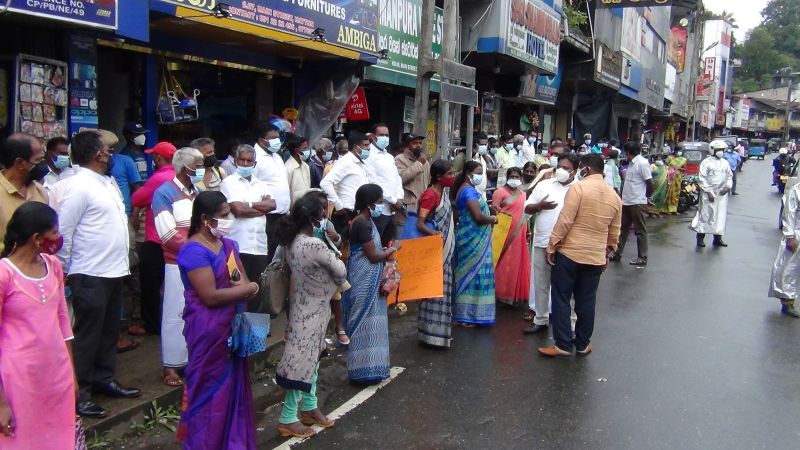Sri Lanka is in the process of implementing a foster parent concept to feed extreme malnourished kids as over 20,000 children are starving due to economic hardships with the island nation’s unprecedented financial crisis, Health Minister Keheliya Rambukwella said.
An estimated 6.3 million people in Sri Lanka are facing moderate to severe acute food insecurity and their situation is expected to worsen if adequate life-saving assistance and livelihood support is not provided, a report by the Food and Agriculture Organization (FAO) of the United Nations (FAO) and the United Nations World Food Programme (WFP) warned last month.
A UNICEF report last month showed that over 5.7 million people, including 2.3 million children, require humanitarian assistance in Sri Lanka, making it among the top ten countries with the highest number of malnourished children with the numbers expected to to rise further.
Health Minister Rambukwella said the authorities are in the process to get some funds from donors to address extreme malnutrition among the kids who are yet to start school.
“There are (rich) parents who want to do that. It costs about 5000 rupees per month per child. One has already taken 20 children and another one has taken 100 children,” Ramkukwella told in an interview with EconomyNext on Thursday (13).
“The malnutrition has increased by 2 percent. It is not alarming, but we need to be watchful.”
“There could be 5-10 extreme malnourished children in each grama sevaka division. Things are not going to improve overnight and the food supply chain is not going to improve. The ground reality is people are feeling.”
Under the scheme a parent or a sponsor will take care of at least one child and make sure the kids recover from acute malnutition.
The minister said the proposed foster parent model is targeting up to 30,000 extreme malnourished children and the funds raised for the programme will be spent to improve their nutrition level and keep them healthy until the food supply improves.
Sri Lanka is facing a food shortage as a result of former president Gotabaya Rajapaksa banned imports of agrochemicals overnight without giving any alternatives for farmers to secure healthy and large harvest.
“This malnutrition will reflect perhaps when we are not there. There will be weak children when they are becoming 10-12 years. It will be a huge challenge for us. So this situation has to be arrested,” the minister said.
“The harvest in the next cultivation season is going to be good with the fertilizer usage. Basically we have a gap of about three months to manage,” he said referring to the time period the foster parent scheme may required.
Under the scheme, the minister said children will be helped by periodical check while ensuring additional food quota for the malnourished kids according to their requirements.
“Once we see the success of the trial, we will start with Nuwara Eliya and Monaragala which are most affected area,” he said.


